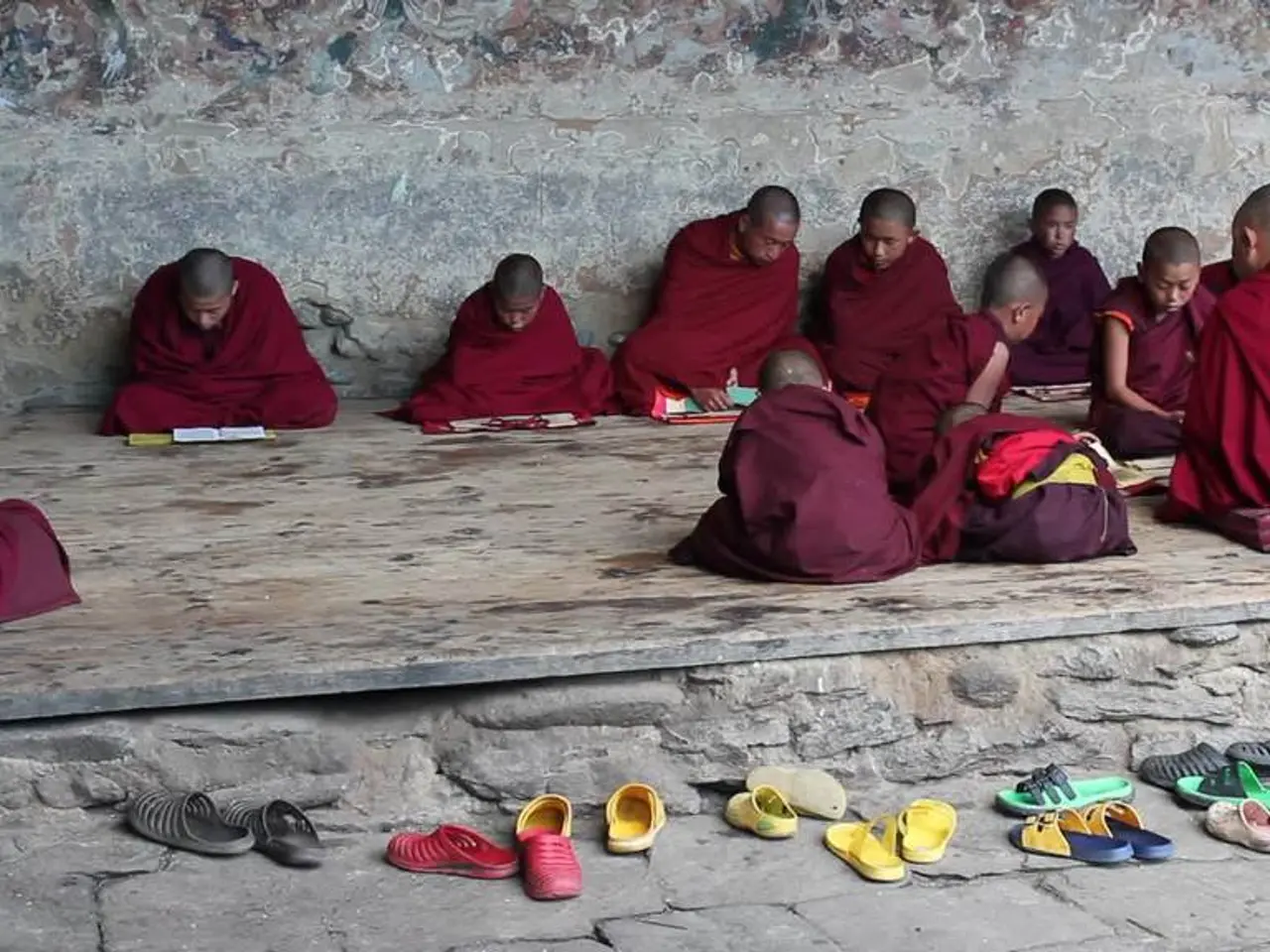Investigation into the leadership of the renowned Shaolin Temple in China, with allegations of financial misconduct, sexual misbehavior, and alleged impersonation as a Buddhist monk.
In a shocking turn of events, the Abbot of China's revered Shaolin Temple, Shi Yongxin, is currently under investigation for suspected embezzlement and improper relationships with women. These accusations, which violate Buddhist precepts, have caused considerable controversy given Shi Yongxin's significant role in transforming the Shaolin Temple into a global brand[1][2].
Over the past two decades, Shi Yongxin has been a member of China's rubber-stamp parliament and has frequently appeared in the media spotlight, meeting world leaders and industry titans, including the late Queen Elizabeth II, Nelson Mandela, Henry Kissinger, and Tim Cook[3]. Known as the "CEO monk" for his entrepreneurial endeavours that transformed the Buddhist monastery into a commercial empire, Shi Yongxin expanded the Shaolin Temple's global influence by commercializing its martial arts heritage and promoting kung fu shows and related merchandise[1][2].
However, this role has been controversial, sparking mixed reactions about the commercialization of a religious institution[1][2]. The Shaolin Temple, established over 1,500 years ago, is a cultural icon renowned for its age-old tradition of Zen Buddhism and Shaolin kung fu.
Previous allegations have targeted Shi Yongxin, including claims of fathering several children and financial misconduct. However, a 2016 provincial investigation reportedly exonerated him of these charges[1]. Despite past exonerations, the current probe is being conducted by multiple government departments jointly, and the findings will be publicly announced in due course[1].
Due to the serious nature of the allegations, China’s Buddhist Association has stripped Shi Yongxin of his ordination certificate, signalling his removal from the monastic community and condemning his actions as severely damaging to Buddhism’s image[2]. In February, Shi led a delegation of monks from the Shaolin Temple to meet with Pope Francis[4].
In light of these developments, the Buddhist Association of China has taken a firm stance, supporting and endorsing the decision to handle Shi Yongxin's case in accordance with the law[2]. Unflattering headlines have dogged Shi Yongxin for years, including his acceptance of a 1 million yuan car from the local government as a reward for promoting tourism in 2006[1].
Despite the ongoing investigation, Shi Yongxin's actions have already severely tarnished the reputation of the Buddhist community and damaged the image of monastics, according to the Buddhist Association of China[2]. In 2015, Shi Yongxin wrote a $3 million check to an Australian town to build a Shaolin branch, stating, "If China can import Disney resorts, why can't other countries import the Shaolin Monastery?"[1].
This situation marks a major scandal for one of China’s most iconic religious and cultural institutions. The investigation is ongoing, and further information will be released to the public in due course.
References: 1. The Guardian 2. South China Morning Post 3. CNN 4. BBC News
- The investigation into Shi Yongxin, the Abbot of China's Shaolin Temple, has gained worldwide attention, given his significant role in transforming the temple into a global brand.
- Shi Yongxin's actions, which include embezzlement and improper relationships, have prompted controversy and pushed the limits of acceptance, especially in light of his high-profile meetings with world leaders and industry titans.
- The commercialization of the Shaolin Temple, a cultural icon renowned for its age-old tradition of Zen Buddhism and Shaolin kung fu, has been a contentious topic, with some viewing it as a means of advancing the temple's global influence, while others see it as a violation of its religious roots.
- In the face of these allegations and scandals, the Buddhist Association of China has appealed to the legal system, endorsing the investigation and expressing concern over the damage done to the Buddhist community's reputation and the image of monastics.




